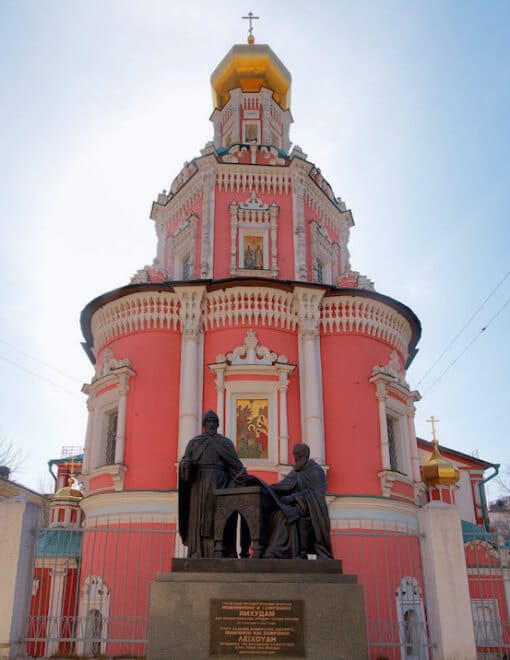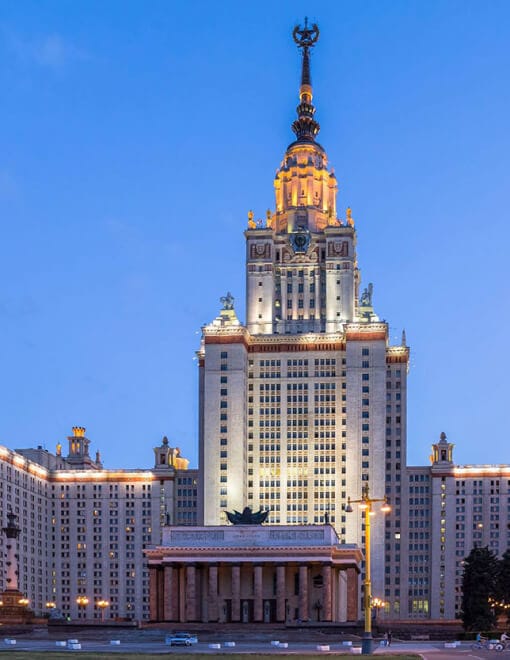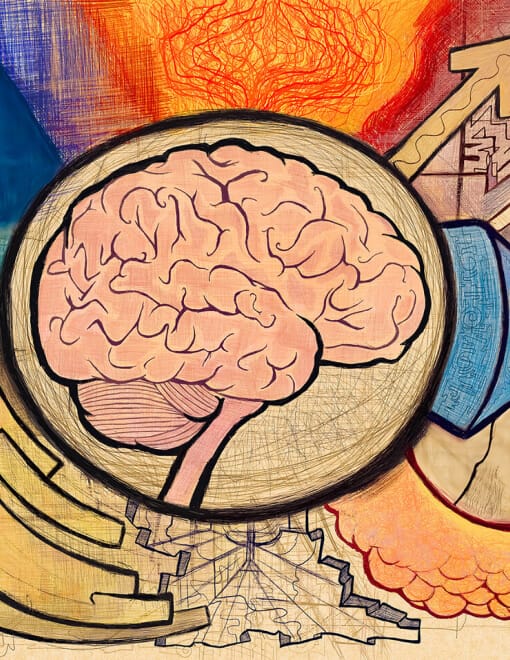
Education
system
Higher education in Russia is a promising investment in your future. One of the main advantages is obtaining high-quality knowledge and professional skills in a certain field, which allows graduates to be competitive in the labor market and achieve career success.
Russian higher education provides the opportunity to obtain a diploma or academic degree that is recognized not only within the country, but also abroad. This opens doors to various career opportunities and international collaborations.
History and traditions of Russian higher education
The history of higher education in Russia goes back more than several centuries and is rich in traditions. The first educational institutions similar to modern universities appeared in Medieval Rus'. One of the most famous examples of such institutions is the Moscow Slavic-Greek-Latin Academy, founded in 1687.
The development of higher education in Russia was started by Peter I, who signed a decree in 1724 on the opening of the Academy of Sciences in St. Petersburg.

Through the efforts of Mikhail Lomonosov, the founder of classical continuing education in Russia, Moscow State University was established in 1755.
In the 19th and 20th centuries, higher education in Russia continued its development and expansion. New specialized universities, higher education institutions and institutes were created, which became important centers of scientific research, education and culture. Russian scientists have made significant contributions to various fields of science and art, gaining recognition both in Russia and abroad.

The traditions developed in Russian higher education are distinguished by a high degree of academic rigor and scientific responsibility. One of the key aspects of the Russian education system is the emphasis on fundamental learning, which means in-depth study of subjects and the development of a broad outlook.

Russian students actively participate in scientific research and projects, conferences and seminars. This allows them to effectively develop their professional skills, critical thinking, and independent work skills.
Today Russia is one of the leading countries in the field of higher education. Many Russian universities occupy high places in world rankings, and graduates get jobs in large companies around the world.





Education levels
In Russia, higher education has several levels, each of which represents a certain step in the student’s educational ladder.
-
Bachelor's degree is the first stage of higher education. The duration of training is 4 years. Upon completion of training, the student receives a diploma of higher education.
A bachelor's degree is intended for those who are just starting their professional career and want to gain basic knowledge in their chosen field.
More about bachelor's degree -
Master's degree is the second stage of higher education, aimed at training professionals with in-depth knowledge in their specialty. The duration of training is 2 years.
You can get a master's degree not only where you received your bachelor's degree. Graduates may consider another university for admission. Training is possible on a budget or paid basis.
More about the master's program -
Postgraduate study is a research program that lasts from 3 to 5 years. Graduate students engage in scientific research under the guidance of experienced teachers and experts in their field.
The main goal of entering the third level of study is to obtain a PhD degree. After graduate school, you can study further, become a doctor of science, if you manage to defend your dissertation.
More about graduate school
Advantages of higher education in Russia
The quality of education
Higher education in Russia is known for its high quality of education. Universities provide high-quality knowledge and skills in various specialties. Training programs are developed in compliance with all higher education standards and taking into account the latest trends in various fields of science.
Fame and recognition of diplomas
Diplomas obtained from Russian universities and higher education institutions are recognized and valued not only in the country, but also abroad. This opens doors for students on the international labor market and provides opportunities for career growth and development not only in Russia, but also abroad.
Variety of specialties
Higher education in Russia offers many specialties in various fields of knowledge. Whether in the humanities, sciences or engineering, students have the opportunity to choose a field that suits their interests and abilities.
Scientific research
Russian universities actively conduct scientific research in various fields. Students are given the opportunity to take part in research projects, work with leading scientists and apply their acquired knowledge in practice. This provides students with valuable experience and helps develop their scientific potential.
Global Community
Higher education in Russia attracts students from all over the world, creating a multinational and intercultural learning environment. This provides students with the opportunity to interact with representatives of different cultures, expand their knowledge and develop intercultural communication.
Ratings
Russian universities have achieved significant success in international rankings in recent years, which reflects the level of higher education in the country.

QS World University Rankings
One of the most authoritative international rankings, which evaluates universities on various indicators, including academic reputation, quality of teaching, research, international cooperation and attractiveness to international students. In recent years, Russian universities have shown constant growth in this ranking. For example, Moscow State University (MSU) ranks high at 84th place, and Moscow Institute of Physics and Technology (MIPT) ranks 104th.

Times Higher Education World University Rankings
This ranking involves universities from around the world and is assessed on factors such as academic reputation, quality of teaching, research, international impact and innovation. In a recent ranking, Moscow State University took 199th place, MIPT - 234th, and St. Petersburg State University - 301st, showing a steady improvement in results.

QS Emerging Europe and Central Asia Rankings
The ranking evaluates universities in Eastern Europe and Central Asia. In this ranking, Russian universities, such as Moscow State University and Moscow Institute of Physics and Technology, have high positions and are considered the most prestigious educational institutions in the region.










